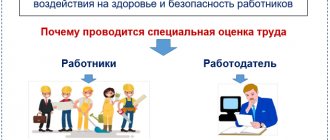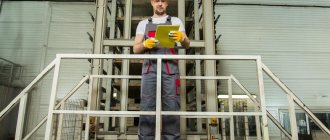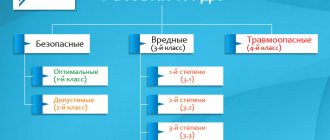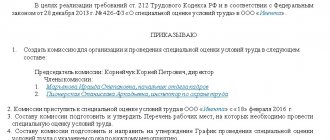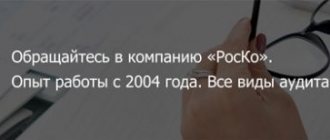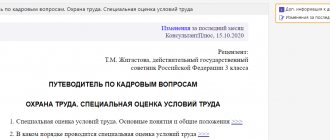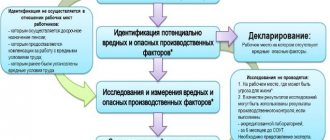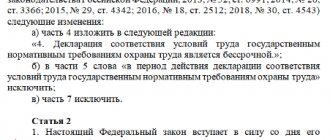The root of the evil of this problem lies in Part 3 of Art. 3 of the Federal Law of December 28, 2013 N 426-FZ “On a special assessment of working conditions”, since this is where the “indulgence” for jobs of homeworkers and remote workers is not carried out. As of the date of writing of the article, there is no need to carry out SOUT at the workplaces of state civil servants and municipal employees (part 4 of Article 3). Additionally, in the letter of the Ministry of Labor of the Russian Federation dated June 8, 2021 N 15-1 / OOG-1593 it is mentioned that SOUT is not carried out at workers places of employees of the Federal Penitentiary Service, internal affairs bodies of the Russian Federation, and the National Guard of the Russian Federation who perform state law enforcement service. Therefore, at all remaining workplaces it is necessary to carry out SOUT, this follows from a direct reading of Art. 3. Now let us present, in chronological order, the currently available explanations on the question “Is it possible to carry out special labor assessment work at vacant workplaces?” and most importantly, “Is it necessary to carry out SOUTH on vacant jobs?” Action one - Rostrud disowned the problem.
11.11.2014 Portal Rostrud Online inspection of the Russian Federation Special assessment of working conditions in relation to vacant jobs Is it possible to conduct a special assessment of working conditions in relation to vacant jobs? To carry out the SOUT, it is necessary to inform the SNILS of the employees who work at each workplace. If the place is vacant, then SNILS cannot be imagined. On this basis, the enterprise is refused to carry out a special assessment of vacancies in relation to vacant jobs. And hiring an employee to a workplace for which special assessment has not been carried out violates the law. What to do in this situation? Answer This question does not fall within the competence of Rostrud. We recommend that you contact the Russian Ministry of Labor.
Expand
Legal basis
In accordance with clause 5.5.4 of the Decree of the Government of the Russian Federation of June 30, 2004 No. 324 “On approval of the regulations on the Federal Service for Labor and Employment”, this body advises employers and employees on compliance with labor laws and regulations containing standards labor law.
In accordance with clause 1. of the Regulations on the Ministry of Labor and Social Protection of the Russian Federation, approved by Decree of the Government of the Russian Federation dated June 19, 2012 N 610, the Ministry of Labor and Social Protection of the Russian Federation (Ministry of Labor of Russia) is a federal executive body that carries out the functions of developing and implementing state policy and legal regulation in the field of demography, labor, standard of living and income, wages, pensions, including non-state pensions, social insurance (except for compulsory health insurance), labor conditions and safety, social partnership and labor relations, employment and unemployment, labor migration, alternative civil service, state civil service (except for issues of remuneration), social protection of the population, including social protection of families, women and children, elderly citizens and veterans, citizens affected by emergencies situations, guardianship and trusteeship in relation to adult incapacitated or partially incompetent citizens, social services for the population, provision of prosthetic and orthopedic care, rehabilitation of the disabled, medical and social examination, as well as the management of state property and the provision of public services in the established field of activity.
In accordance with clause 5.16.
of the above Regulations, the Ministry of Labor of Russia provides clarifications on issues within the competence of the Ministry in cases provided for by the legislation of the Russian Federation. Action two - the Ministry of Labor expressed its position.
03/14/2016
Letter of the Ministry of Labor No. 15-1 / OOG-1041 excerpt “In accordance with paragraph 15 of the Methodology for conducting a special assessment of working conditions, approved by Order of the Ministry of Labor of Russia dated January 24, 2014 No. 33n, research (testing) and measurement of harmful and (or) dangerous factors are carried out during the implementation of regular production (technological) processes and (or) regular activities of the employer, taking into account the production equipment, materials and raw materials used by the employee, which are sources of harmful and (or) dangerous factors.
Taking into account the above, a special assessment of working conditions at a vacant workplace cannot be carried out , since in the absence of an employee, regular production (technological) processes are not carried out at such a workplace.
Thus, the possibility of conducting an unscheduled special assessment of working conditions at a vacant workplace can only be realized after hiring an employee.”
What is a special assessment?
According to the Labor Code of the Russian Federation, the employer is obliged to provide safe working conditions for its employees. Among other things, one of the measures to promote such safety is a special assessment of workplaces, which the employer must also organize and finance.
A special assessment of working conditions is a regulated set of sequential measures to identify harmful and/or dangerous production and labor factors. SOUT allows you to assess the level of exposure to harmful factors on employees and take into account deviations from established standards for safe working conditions.
Action four - Rostrud changed its position on this issue.
28.06.2016
Rostrud portal Online inspection of the Russian Federation
SOUTH for vacant jobs Good afternoon! Is it necessary to carry out SOUTH at vacant workplaces ? And what about jobs where yesterday there was an employee, and today he quit... or vice versa??? Perhaps there is some official clarification on this issue? Answer: 1. Yes, it is necessary. A special assessment of working conditions (SAL) is not carried out in relation to the working conditions of homeworkers, remote workers and workers who have entered into labor relations with employers - individuals who are not individual entrepreneurs. In all other cases, SOUT is carried out. 2. A new employee, when familiarizing himself with the special assessment card of working conditions, must sign in the appropriate column (the column goes after line 50 of the SOUT card) of the SOUT card after the last employee indicated in it, or first if the workplace was vacant.
Expand
Legal basis: According to Part 2 of Art. 212 of the Labor Code of the Russian Federation, the employer is obliged to ensure a special assessment of working conditions in accordance with the legislation on special assessment of working conditions. By virtue of Art. 3 of the Federal Law of December 28, 2013 N 426-FZ “On the special assessment of working conditions”, a special assessment of working conditions is a single set of consistently implemented measures to identify harmful and (or) dangerous factors in the working environment and the labor process (hereinafter also referred to as harmful and (or) ) hazardous production factors) and assessing the level of their impact on the employee, taking into account the deviation of their actual values from the standards (hygienic standards) of working conditions and the use of individual and collective protective equipment for workers established by the federal executive body authorized by the Government of the Russian Federation. A special assessment of working conditions is not carried out in relation to the working conditions of homeworkers, remote workers and workers who have entered into employment relationships with employers - individuals who are not individual entrepreneurs. According to Part 5 of Art. 15 of the Federal Law of December 28, 2013 N 426-FZ “On a special assessment of working conditions”, the employer organizes familiarization of employees with the results of a special assessment of working conditions at their workplaces against signature within no later than thirty calendar days from the date of approval of the report on the special assessment assessment of working conditions. The specified period does not include periods of temporary incapacity for work of the employee, being on vacation or a business trip, or periods of rest between shifts. In accordance with paragraphs. 12 clause 5 of Appendix No. 4 to Order of the Ministry of Labor of Russia dated January 24, 2014 N 33n, the date of its preparation is indicated in the card for a special assessment of working conditions. The card is signed by the chairman and members of the commission for conducting a special assessment of working conditions, and by the expert (experts) of the organization. The card is also signed by employees employed at this workplace.
Who regulates the procedure for conducting SOUT?
The procedure for conducting a special assessment is regulated by certain regulations. Thus, general information is contained in Federal Law No. 426 “On special assessment of working conditions”; the methodology for carrying out, the rules for drawing up a report on the implementation of SOUT, a list of harmful and dangerous production factors and other information are contained in the orders of the Ministry of Labor No. 32n, No. 33n and No. 80n.
SOUTH must be carried out at all workplaces of employees with whom labor relations have been established. The special assessment is carried out by the employer together with a specialized organization engaged in conducting special assessments.
Lexintel specialists will help carry out a full range of work on SOUT in Moscow and the Moscow region. We will carry out all the necessary preparatory work, assess and analyze potentially harmful and/or dangerous production factors, and prepare a final package of documentation based on the results of the special assessment. Call.
Action five - Rostrud changed its mind (or there may be confusion with the dates on the portal)
07.10.2016
Rostrud portal Online inspection of the Russian Federation
SOUTH for vacancies. To my question dated 10/03/2016 about conducting SOUTH for vacant positions of office workers (to be more specific, computer operators), the answer was received: “A systematic analysis of regulations on the special assessment of working conditions (links to which are given in the Legal Basis) allows us to conclude that that a special assessment of working conditions at a vacant workplace is not carried out, since in the absence of an employee, regular production (technological) processes are not carried out at such a workplace.” From the above it follows that this is a subjective opinion and not a direct indication of the legislation. Meanwhile, Deputy Head of the Federal Service for Labor and Employment I.I. Shklovets on the question: “What should be taken into account the total number of jobs when conducting a special assessment: the actual number of employees or the number of units according to the staffing table?” believes that it is better to take the number of jobs that corresponds to the number of units according to the staffing table, but this issue is not regulated by law, so the final decision on this must be made by a commission, taking into account expediency. And the feasibility lies in the fact that: 1. Vacant places for computer operators are equipped, turning on the computer, printer and the presence of lighting are all parameters for the implementation of the regular production process at a given workplace. 2. The fact that this place is vacant or not will not affect the indicators of illumination measurements - the only thing that is measured during the SOUT of the computer operator’s workplace. 3. At the computer operator’s workplace, according to Methodology (33n), harmful and dangerous factors are not identified; the places are known to be free of harmful and dangerous factors. 4. There are applicants for vacant positions, the selection process is underway. So why can’t I carry out SOUT for these places? The law does not prohibit it. Answer: A special assessment of working conditions at a vacant workplace cannot be carried out, since in the absence of an employee, regular production (technological) processes are not carried out at such a workplace.
Expand
Legal basis: In accordance with paragraph 15 of the Methodology for conducting a special assessment of working conditions, approved by Order of the Ministry of Labor of Russia dated January 24, 2014 N 33n, studies (tests) and measurements of harmful and (or) dangerous factors are carried out during the implementation of regular production (technological) processes and (or) regular activities of the employer, taking into account the production equipment, materials and raw materials used by the employee, which are sources of harmful and (or) dangerous factors.
Timing and frequency
A special assessment of working conditions in the workplace is carried out at least once every 5 years . However, there are cases that oblige the employer to conduct an unscheduled SAW. Let's look at them below.
Within 12 months it is necessary to carry out a special assessment if:
- New jobs were organized and put into operation;
- The technological process has changed, production equipment has been replaced, which could have an impact on the level of exposure to harmful and dangerous factors on workers;
within 6 months if:
- The employer received an order from government agencies to conduct an unscheduled special assessment in connection with the identification of any violations during state inspections;
- The composition of the materials and raw materials used has changed, which may affect the level of exposure to harmful and hazardous production factors on workers;
- The personal and collective protective equipment used has changed, which may also have an impact on the level of harmful effects on workers;
- An accident occurred at the workplace (not due to the fault of third parties) or an occupational disease was discovered, the cause of which was harmful production factors;
- The company's trade union or other representative bodies of workers motivate their insistence on a special assessment.
There is no need for a special assessment of working conditions at a vacant workplace.
The basis for providing compensation to workers engaged in work with harmful or dangerous working conditions is the results of a special assessment of working conditions (SOUT) at these workplaces (Clause 6, Article 7 of the Federal Law of December 28, 2013 No. 426-FZ “On Special Assessment working conditions”, hereinafter referred to as Law No. 426-FZ). SOUT is understood as a single set of consistently implemented measures for:
- identification of harmful or dangerous factors in the working environment and labor process;
- assessing the level of their impact on the employee, taking into account deviations from working conditions standards and the use of individual and collective protective equipment for workers.
Identified actual values of harmful or dangerous factors are subject to research and measurements, which are carried out during standard production (technological) processes or regular activities of the employer, taking into account the production equipment, materials and raw materials used by the employee (clauses 12, 15 of the Methodology for special assessment of working conditions , approved by order of the Ministry of Labor of Russia dated January 24, 2014 No. 33n). Therefore, the Ministry of Labor of Russia clarified: it is impossible to carry out SOUT at a vacant workplace, since in the absence of an employee, regular production (technological) processes are not carried out at his workplace. It will be possible to conduct a special assessment only after the employee has arrived at the vacant workplace.
To organize and conduct SOUT, the employer forms a commission for conducting SOUT. Its composition and operating procedure are approved by order (instruction) of the employer in accordance with Article 9 of Law No. 426-FZ. The Russian Ministry of Labor explained that the commission includes:
- employer - individual entrepreneur (personally) or head of an organization;
- authorized representatives of the employer, including a labor protection specialist engaged under a civil contract;
- representatives of the elected body of the primary trade union organization or other representative body of workers (if any).
The specific number of members of the commission for carrying out special assessments will be determined taking into account the employer’s staffing table.
Let us remind you: if before 01/01/2014 workplaces were certified for working conditions, then the SOUTH in respect of such workplaces may not be carried out for five years from the date of completion of the certification. In this case, to provide compensation to employees engaged in work with harmful and (or) dangerous working conditions, the results of workplace certification are used. An exception to this procedure is situations when it is necessary to conduct an unscheduled special assessment (part 4 of article 27 of Law No. 426-FZ).
What's new in the SOUT procedure since 2020
Globally, legislators did not rewrite Law No. 426-FZ. But starting from 2021, there will be a number of significant adjustments to the procedure for conducting SOUT.
The changes affected not the special assessment procedure itself, but the preparatory stages for it and the final procedures, as well as a number of other provisions of Law No. 426-FZ.
If we list these amendments very briefly, they will fit into a few lines:
- the organization conducting the special assessment is responsible for registering the employer before the start of the special assessment in the FSIS SOUT system and then notifying him of the special identification number assigned by the system ─ without this number, the SOUT report will be invalid;
- the start of validity of the SOUT results will shift ─ it will be possible to use the results of the special assessment only after information about it appears in the FSIS SOUT (federal information system for recording the results of the special assessment). Now this moment is tied to the date of approval of the report.
Important clarification! New edition of Part 4 of Art. 8 of Law No. 426-FZ provides that the period of the special assessment will continue to be calculated from the date of approval of the report regarding the results of the special assessment, containing information that constitutes a state or other secret protected by law.
But that's not all the changes. In the new edition of Law No. 426-FZ, a number of other aspects will be corrected and added regarding the additional responsibilities of appraiser organizations, the timing of approval of the SOUT report, the use of UKEP when sending a copy of the approved report, etc. We will talk about them further.
Automatic fines SOUT 2021
For the fact that an employer violated the rules for conducting a special assessment established by law or did not carry out this procedure at all, in 2020 they will continue to be punished under Part 2 of Art. 5.27.1 Code of Administrative Offenses of the Russian Federation.
The penalties have not changed - the employer will be warned or fined in the following amounts:
- officials and individual entrepreneurs - from 5,000 to 10,000 rubles;
- companies - from 60,000 to 80,000 rubles.
The differences between the 2020 fines and those in force in 2021 are the possibility of their imposition not only by inspectors during inspections, but also the generation of fines automatically.
A special computer program will monitor information received by FSIS SOUT and compare data on the registration period of employers with information on the special assessment they conducted. If the program detects that the company has been operating for more than a year, but has not carried out a special assessment, a fine under Part 2 of Art. 5.27.1 of the Code of Administrative Offenses of the Russian Federation will be calculated automatically without the participation of controllers.
Let's sum it up
- Starting from 2021, amendments and additions are being made to the Law “On Special Assessment of Working Conditions” dated December 28, 2013 No. 426-FZ, according to which SOUT participants will have new responsibilities.
- The appraiser company will be obliged, before the start of the SOUT, to register the employer in the FSIS SOUT and inform him of the identification number assigned to him by this system - without this number, the SOUT report will be invalid.
- It will be possible to use the results of the special assessment only after information about it appears in the FSIS SOUT (currently this moment is tied to the date of approval of the report).
- The appraiser company will have a new obligation to inform the employer about the fact of sending information to FSIS SOUT about the special assessment carried out at his enterprise. This is given 3 working days from the moment such information is sent to the information system.
- From 2021, fines for violating the procedure for conducting special assessments and failure to conduct a special assessment will be assessed not only based on the results of inspections, but also automatically based on the results of monitoring the information available in the information system.
If you find an error, please select a piece of text and press Ctrl+Enter.
